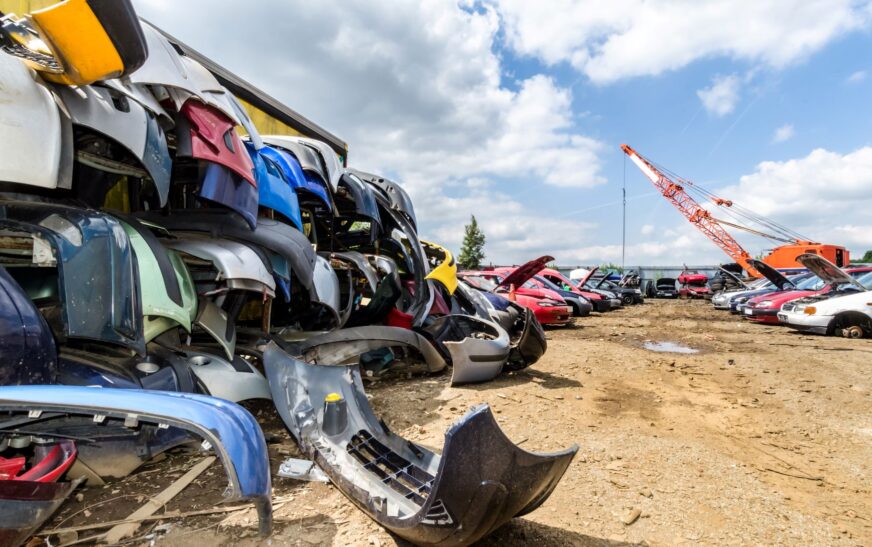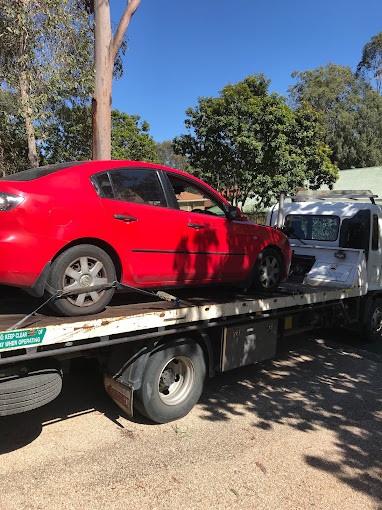The automotive recycling industry has undergone significant changes over recent decades, driven by technological advancements, environmental concerns, and the demand for sustainable practices. With a rising number of end-of-life vehicles, the need for effective and eco-friendly recycling methods has become paramount. Modern recycling technologies have transformed the way vehicles are processed, maximizing the recovery of materials while reducing the environmental impact.
Understanding the Basics of Automotive Recycling
Automotive recycling is the process of dismantling and reprocessing vehicles that have reached the end of their life. This process involves carefully separating valuable parts and materials, such as metal, rubber, and glass, which can be reused in new vehicles or repurposed in other industries. Traditionally, vehicle recycling was primarily focused on extracting scrap metal. However, advancements in technology have enabled recyclers to recover a wider range of materials, ensuring that even minor components are put to beneficial use.
Key Phases in Automotive Recycling
Recycling a vehicle involves several steps, each designed to maximize resource recovery and minimize environmental harm. The primary phases include:
- Vehicle Depollution: This initial stage involves draining hazardous fluids like oil, brake fluid, and antifreeze. Proper removal and disposal of these fluids are essential to prevent pollution.
- Dismantling: In this phase, valuable parts such as engines, transmissions, and electronics are removed. These parts are often refurbished and sold as replacement components, giving them a new lease on life.
- Shredding and Material Separation: After dismantling, the remaining vehicle shell is shredded into smaller pieces. Advanced technologies are then used to separate materials based on their type, such as ferrous metals, non-ferrous metals, and plastics.
Advanced Technologies Transforming Automotive Recycling
With the integration of modern technology, automotive recycling has become more efficient, allowing for the recovery of an even higher percentage of vehicle components. Some notable advancements include:
- Automated Dismantling Machines: These machines can quickly and accurately dismantle vehicles, removing parts without causing damage. By automating this process, recyclers can recover a larger number of components in less time.
- Magnetic Separation and Eddy Current Systems: These systems help in efficiently separating metal types, such as steel and aluminum, from other materials. Magnetic separation is used for ferrous metals, while eddy current systems are effective for non-ferrous metals.
- Optical Sorting Technologies: Optical sorting uses infrared sensors and cameras to detect specific materials, such as plastics and glass. This technology ensures precise separation, which is crucial for recycling high-quality materials.
The Role of Artificial Intelligence in Automotive Recycling
Artificial intelligence (AI) has become an invaluable tool in automotive recycling, especially in sorting and managing large quantities of recycled materials. AI-driven systems can quickly identify and categorize parts, enhancing sorting efficiency and reducing the margin of error. These technologies are also used to monitor recycling processes, allowing for real-time adjustments that ensure safety and effectiveness.
AI is particularly useful in assessing the quality of parts removed from end-of-life vehicles. By analyzing patterns and recognizing defects, AI helps determine whether a component can be reused, repaired, or recycled. This level of precision reduces waste, improves resource allocation, and enhances the overall sustainability of the recycling process.
The Environmental Impact of Recycling Technologies
One of the main reasons for the evolution of recycling technologies is the drive to reduce environmental damage. Traditional recycling methods often contributed to waste and pollution, as not all vehicle materials could be processed efficiently. The adoption of advanced recycling techniques has led to:
- Lower Greenhouse Gas Emissions: Modern recycling methods require less energy, which reduces greenhouse gas emissions compared to the production of new materials.
- Decreased Landfill Usage: By recovering a wider variety of materials, recyclers reduce the amount of waste sent to landfills. This conserves space and minimizes the environmental footprint.
- Reduced Raw Material Extraction: Recycling metals and other materials from vehicles reduces the need for mining and other extraction processes, which are often harmful to the environment.
Supporting Sustainable Recycling through Cash for Cars Services
As the automotive recycling industry continues to evolve, companies in Brisbane, such as Jimmy Cash for Cars, play a significant role in ensuring that end-of-life vehicles are processed in an environmentally responsible manner. By offering competitive prices for scrap cars, these services contribute to the efficient recycling of vehicle components, supporting the overall goal of reducing waste and preserving valuable resources. For those looking to dispose of their old vehicles, opting for services like sell unwanted car Brisbane ensures that the car is dismantled using the latest recycling technologies, promoting both sustainability and resource recovery in the process.
Company Address: 20 Bonemill Rd, Runcorn QLD 4113, Australia
Economic Benefits of Advanced Recycling Technologies
Besides environmental gains, modern recycling technologies have also brought significant economic benefits. By recovering valuable materials such as metals and plastics, the recycling industry reduces reliance on newly mined resources. This not only supports the economy but also lowers manufacturing costs, as recycled materials are often more affordable than new ones. Furthermore, the demand for skilled labor in recycling facilities has grown, creating jobs and supporting local economies.
The ability to recycle more components has also increased the profitability of junkyards and scrapyards. Parts like aluminum, copper, and rubber are in high demand, making automotive recycling a financially viable industry. With ongoing advancements, recyclers can continuously improve efficiency, maximizing both material recovery and profitability.
Future Trends in Automotive Recycling
As the automotive industry shifts toward electric vehicles (EVs), recycling practices will need to adapt. Electric vehicles contain components like lithium-ion batteries, which require specialized recycling methods due to their hazardous materials. Future trends in recycling will likely focus on developing processes to safely dismantle and recycle EV components.
Additionally, advancements in recycling technology will continue to prioritize sustainability, aiming to recover an even higher percentage of vehicle materials. The integration of AI, robotics, and automation will streamline the recycling process, improving both the quality and quantity of recycled materials.
Conclusion
The evolution of automotive recycling technologies marks a significant step toward a sustainable and environmentally responsible automotive industry. From automated dismantling machines to advanced material sorting systems, these technologies have transformed the way vehicles are processed, reducing waste and lowering environmental impact. The cash-for-cars industry, including services in cities like Brisbane, plays a critical role in supporting this eco-friendly approach by collecting and processing end-of-life vehicles in alignment with modern recycling standards.
As technology continues to advance, automotive recycling will become even more efficient and effective, supporting the global shift toward a greener future. This transformation not only helps preserve the environment but also provides economic opportunities, making automotive recycling a cornerstone of sustainable industrial practices. Through continued innovation, the automotive recycling industry will remain essential in managing resources, reducing waste, and contributing to a circular economy.










